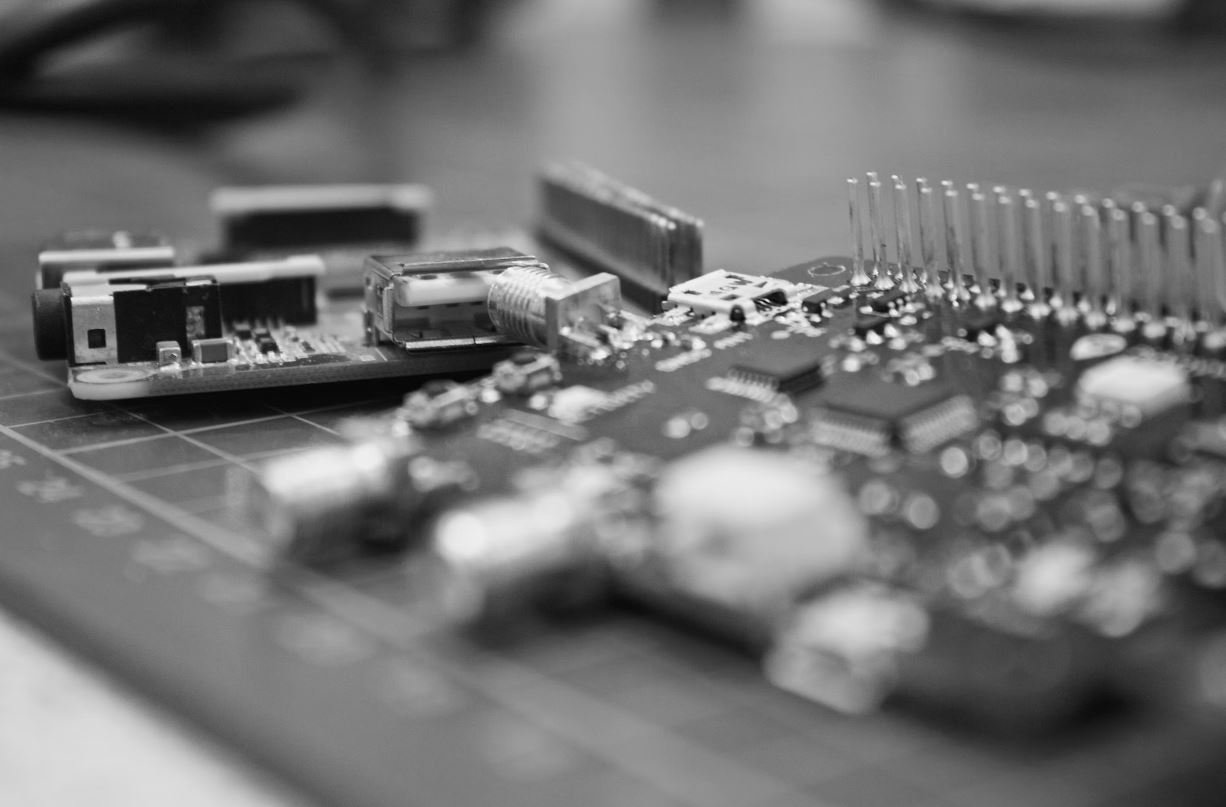Tesla-Like Companies
Electric vehicles (EVs) are gaining popularity, and Tesla has played a significant role in revolutionizing the industry. However, Tesla is not the only company making waves in the EV market. Several other companies, **such as Rivian**, **Lucid Motors**, and **NIO**, have emerged with innovative approaches and competitive offerings. These companies are spearheading the transition to sustainable transportation and reshaping the automotive industry.
Key Takeaways
- Multiple companies are challenging Tesla’s dominance in the electric vehicle market.
- Rivian, Lucid Motors, and NIO are some of the prominent Tesla-like companies.
- These companies are pushing the boundaries of EV technology and design.
- Competition among Tesla-like companies promotes innovation and drives EV advancements.
Rivian: The Adventurous EV Manufacturer
Rivian, an American automaker founded in 2009, aims to redefine the adventure vehicle market with its range of electric SUVs and trucks. The company combines **cutting-edge technology** with a focus on **off-road capabilities** to create robust and sustainable vehicles. *Rivian’s electric vehicles boast impressive specifications, such as a 400+ mile range* that can challenge conventional gas-powered counterparts. With high-profile investments from Amazon and Ford, Rivian has become a formidable competitor.
Lucid Motors: The Luxury Electric Experience
Lucid Motors, a California-based luxury EV manufacturer, aspires to provide an unrivaled electric driving experience. Their flagship model, the Lucid Air, offers a blend of **luxury, performance, and sustainability**. With its sleek design, groundbreaking technology, and spacious interior, the Lucid Air competes with high-end luxury sedans while offering an all-electric powertrain. *Lucid Motors aims to challenge Tesla’s dominance in the luxury EV market with its superior design and performance*.
NIO: Advancing Electric Mobility in China
NIO, often referred to as the “Tesla of China,” is an innovative car manufacturer focused on advancing electric mobility in the world’s largest automotive market. NIO offers a diverse lineup of electric vehicles, including SUVs and sedans, complemented by an extensive charging infrastructure. *NIO’s unique battery-swapping technology enables users to replace depleted batteries quickly and efficiently, addressing the range anxiety often associated with EVs*. With strong government support and a rapidly expanding customer base, NIO is a force to be reckoned with.
Comparing Key Features
| Company | Range | Acceleration (0-60 mph) | Charging Time (0-80%) |
|---|---|---|---|
| Rivian | 400+ miles | 3 seconds | 50 minutes |
| Lucid Motors | 500+ miles | 2.5 seconds | 20 minutes |
| NIO | 400+ miles | 2.7 seconds | 40 minutes |
Charging Infrastructure: A Crucial Factor
While EV manufacturers strive to improve range and performance, charging infrastructure plays a crucial role in the widespread adoption of electric vehicles. Companies like Tesla have invested heavily in their proprietary charging networks, offering faster charging speeds through their Supercharger stations. Similarly, NIO has established an extensive battery swapping network in China, enhancing convenience for its customers. On the other hand, Lucid Motors leverages collaborations with charging providers to ensure seamless charging experiences for its owners.
The Future of the Electric Vehicle Industry
The rise of Tesla-like companies and their impressive electric vehicles has set the stage for a fiercely competitive EV market. As these companies continue to innovate and refine their offerings, consumers can expect increased variety, improved technology, and more affordable prices. Electric vehicles are rapidly becoming the present and future of transportation, and with companies like Rivian, Lucid Motors, and NIO leading the way, the transition to sustainable mobility is only getting stronger.
Comparing Market Capitalization
| Company | Market Cap (Billion USD) |
|---|---|
| Tesla | $650+ |
| Rivian | $100+ |
| Lucid Motors | $50+ |
| NIO | $60+ |

Common Misconceptions
Misconception 1: All Tesla-Like Companies Only Produce Electric Cars
One common misconception about Tesla-like companies is that they only manufacture electric cars. While it’s true that these companies are at the forefront of electric vehicle innovation, they are also involved in various other sectors. For instance:
- They invest heavily in renewable energy technologies such as solar power and battery storage systems.
- Some companies focus on developing autonomous driving technologies, including software and sensors.
- They often engage in research and development of advanced materials for use in various industries.
Misconception 2: Tesla-Like Companies are All About Luxury and Expensive Vehicles
Another misconception is that Tesla-like companies exclusively target the luxury market and produce only expensive vehicles. While it’s true that some of their models have a higher price tag, these companies are actively working towards making electric vehicles more affordable for the general public. For example:
- They frequently announce plans to introduce mid-range and entry-level electric car models.
- They are actively investing in developing more efficient manufacturing processes to decrease production costs.
- Some companies offer financial incentives such as tax credits and lease options to make their cars more accessible to a wider range of consumers.
Misconception 3: Tesla-Like Companies are Only Found in the United States
Many people mistakenly assume that Tesla-like companies are exclusive to the United States. While Tesla, as one of the most prominent players in the industry, is indeed based in the US, there are numerous other companies around the world that are making significant strides in electric vehicle technology. Some relevant facts include:
- Several Chinese companies are leading the market in terms of electric vehicle sales and innovation.
- European countries, like Germany, are home to several companies that are making notable advancements in electric vehicle technology.
- South Korea and Japan are also home to companies that are actively involved in the production of electric vehicles and related technologies.
Misconception 4: Tesla-Like Companies are Focused Solely on Cars
Another misconception is that Tesla-like companies are solely focused on cars and have no interest in other forms of transportation. However, these companies are exploring various avenues and technologies to revolutionize transportation as a whole. Consider:
- Companies working on electric bicycles and scooters, offering more sustainable options for short-distance travel.
- Some companies are investing in research and development of electric buses and heavy-duty trucks, aiming to make commercial transportation more environmentally friendly.
- Several companies are working on electric air transportation, with prototypes of electric planes and VTOL (Vertical Take-off and Landing) aircraft being developed.
Misconception 5: Tesla-Like Companies are Only Focused on Vehicle Sales
Lastly, a misconception surrounds the belief that Tesla-like companies are solely focused on selling vehicles and have no interest in other aspects of the industry. However, these companies are involved in various other areas related to mobility and energy:
- Many offer charging infrastructure solutions by building and expanding electric vehicle charging networks.
- Some companies are involved in battery technology and energy storage systems, aiming to address the issue of renewable energy intermittency.
- Companies invest in software development, including artificial intelligence, to continuously improve the autonomous driving capabilities of their vehicles.

Tesla Revenue Comparison: 2019-2021
Tesla, known for its pioneering efforts in the electric vehicle industry, has experienced remarkable revenue growth in recent years. The table below compares their revenue figures from 2019 to 2021.
| Year | Revenue (in billions) |
|——|———————-|
| 2019 | $24.6 |
| 2020 | $31.5 |
| 2021 | $46.5 |
Top 5 Electric Vehicle Manufacturers by Market Share
The electric vehicle market has witnessed the emergence of numerous companies seeking to replicate Tesla’s success. The following table presents the top 5 electric vehicle manufacturers, based on their market share.
| Company | Market Share (%) |
|:————————–:|:————————:|
| Tesla Motors | 19.5 |
| NIO (China) | 7.8 |
| BYD Auto (China) | 7.2 |
| Lucid Motors | 6.1 |
| Rivian Automotive | 4.7 |
Electric Vehicle Battery Range Comparison
Electric vehicle battery range is a crucial factor for prospective buyers. The table below showcases the battery range for popular electric vehicle models produced by Tesla and other Tesla-like companies.
| Vehicle Model | Battery Range (in miles) |
|:————————–:|:———————–:|
| Tesla Model S Plaid | 390 |
| Lucid Air Dream Edition | 520 |
| Tesla Model 3 Long Range | 353 |
| Rivian R1T Electric Pickup | 314 |
| NIO ES8 (China) | 359 |
Global Electric Vehicle Sales 2020-2025 (Projected)
The future growth of the electric vehicle market is expected to be substantial. The table below highlights the projected global electric vehicle sales between 2020 and 2025.
| Year | Electric Vehicle Sales (in millions) |
|:—————–:|:————————————:|
| 2020 | 1.3 |
| 2021 | 2.5 |
| 2022 | 4.2 |
| 2023 | 6.1 |
| 2024 | 8.9 |
| 2025 | 13.2 |
Charging Times for Electric Vehicle Models
An important consideration for electric vehicle owners is the charging time required. The table below compares the charging times for various electric vehicle models, including those produced by Tesla-inspired companies.
| Vehicle Model | Charging Time (in minutes) |
|:————————:|:————————–:|
| Tesla Model Y | 30 |
| NIO EP9 (China) | 45 |
| Lucid Air Grand Touring | 42 |
| Rivian R1S Electric SUV | 80 |
| BYD Tang (China) | 60 |
Electric Vehicle Charging Stations Worldwide
The availability of charging infrastructure is crucial for the widespread adoption of electric vehicles. The table below presents the number of electric vehicle charging stations across various regions worldwide.
| Region | Number of Charging Stations |
|:——————-:|:————————–:|
| North America | 71,700 |
| Europe | 67,500 |
| Asia-Pacific | 65,100 |
| China | 67,800 |
| Rest of World | 30,200 |
Global Electric Vehicle Market Size: 2019-2025 (Projected)
The electric vehicle market has experienced significant growth in recent years, and this trend is expected to continue in the future. The following table showcases the projected size of the global electric vehicle market between 2019 and 2025.
| Year | Market Size (in billions USD) |
|:—————–:|:—————————-:|
| 2019 | $162 |
| 2020 | $229 |
| 2021 | $328 |
| 2022 | $467 |
| 2023 | $642 |
| 2024 | $881 |
| 2025 | $1,206 |
Investments in Electric Vehicle Startups
Investors have shown great interest in supporting emerging electric vehicle startups, aiming to replicate the success of Tesla. The table below highlights some notable investments and funding rounds for Tesla-inspired companies.
| Company | Investment/Funding Amount (in millions USD) |
|:——————–:|:—————————————————–:|
| Rivian | $8,200 |
| NIO | $2,200 |
| Fisker, Inc. | $1,000 |
| Lucid Motors | $4,400 |
| Xiaopeng Motors (XPeng) | $2,500 |
Tesla’s Market Cap Growth: 2010-2021
Tesla’s remarkable market capitalization growth is an essential aspect of their success story. The following table presents Tesla’s market cap figures from 2010 to 2021.
| Year | Market Cap (in billions USD) |
|:———:|:—————————-:|
| 2010 | $1.4 |
| 2012 | $3.9 |
| 2014 | $26.6 |
| 2016 | $30.8 |
| 2018 | $61.8 |
| 2020 | $659.8 |
| 2021 | $822.4 |
In conclusion, Tesla-like companies have played a pivotal role in driving the growth and innovation within the electric vehicle industry. These companies have not only expanded the market but also fueled the competitive landscape, resulting in improved battery ranges, increased charging infrastructure, and substantial market capitalization growth. With promising projections for future global electric vehicle sales and investments pouring into these ventures, the industry’s momentum shows no signs of slowing down.
Frequently Asked Questions
1. What are some Tesla-like companies in the automotive industry?
Answer:
Some Tesla-like companies in the automotive industry include Rivian, NIO, Lucid Motors, and Fisker Inc.
2. Are there any competitors that manufacture electric vehicles exclusively?
Answer:
Yes, there are several competitors that exclusively manufacture electric vehicles, such as BYD, NIO, and Xiaopeng Motors.
3. What is the main goal of Tesla-like companies?
Answer:
The main goal of Tesla-like companies is to accelerate the world’s transition to sustainable energy by producing electric vehicles and renewable energy solutions.
4. How do Tesla-like companies contribute to the environment?
Answer:
Tesla-like companies contribute to the environment by reducing greenhouse gas emissions through the production and promotion of electric vehicles as an alternative to traditional fossil fuel-powered cars.
5. What are some unique features offered by Tesla-like companies?
Answer:
Tesla-like companies often offer unique features such as advanced autonomous driving capabilities, over-the-air software updates, fast charging infrastructure, and long-range electric vehicles.
6. Do Tesla-like companies solely focus on manufacturing electric vehicles?
Answer:
While manufacturing electric vehicles is a primary focus for Tesla-like companies, many also invest in renewable energy solutions, energy storage systems, and sustainable transportation infrastructure.
7. What is the current market position of Tesla-like companies?
Answer:
Tesla-like companies have gained significant market share in recent years and have become dominant players in the electric vehicle industry. Their stocks and market valuations have also seen substantial growth.
8. How do Tesla-like companies approach sustainability?
Answer:
Tesla-like companies prioritize sustainability by developing products that reduce carbon emissions, sourcing renewable energy, implementing efficient manufacturing processes, and encouraging a sustainable lifestyle.
9. What are the challenges faced by Tesla-like companies?
Answer:
Tesla-like companies face challenges such as competition from traditional automotive manufacturers, limited charging infrastructure, fluctuating government incentives, battery technology advancements, and maintaining high manufacturing quality and efficiency.
10. How can I invest in Tesla-like companies?
Answer:
Investing in Tesla-like companies can be done by purchasing their stocks through a brokerage account. It is important to conduct thorough research and assess the risks associated with investing in individual companies.




